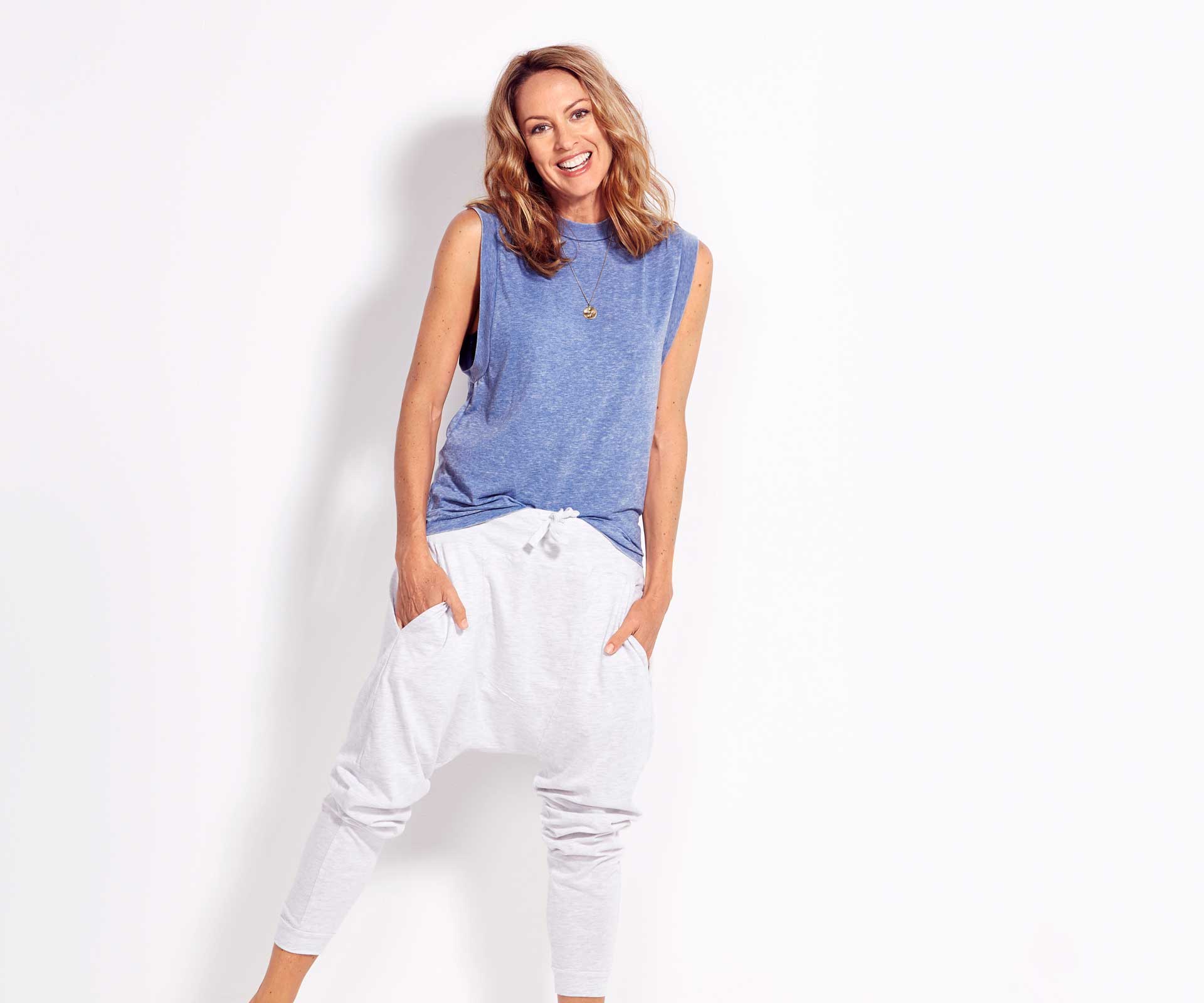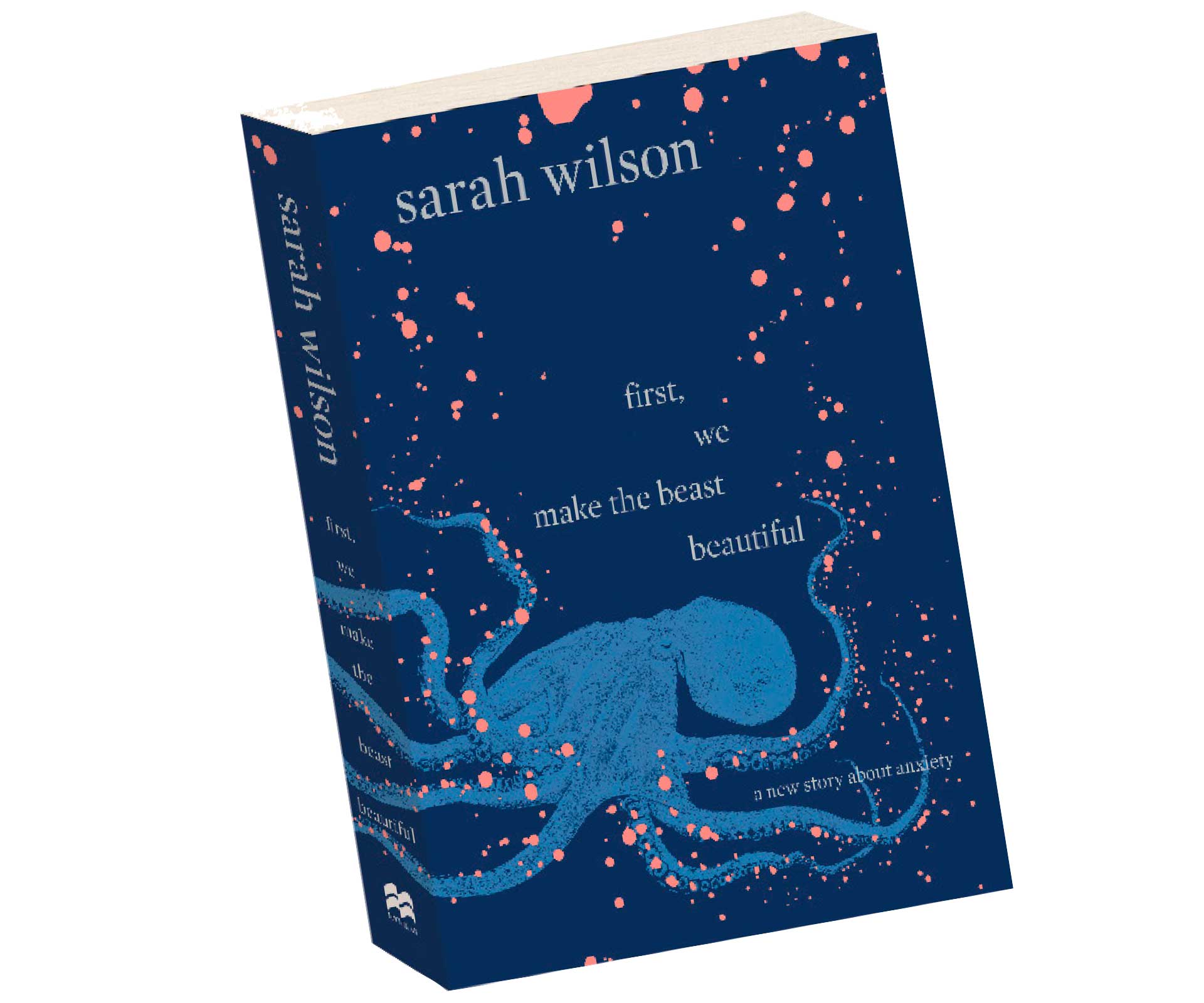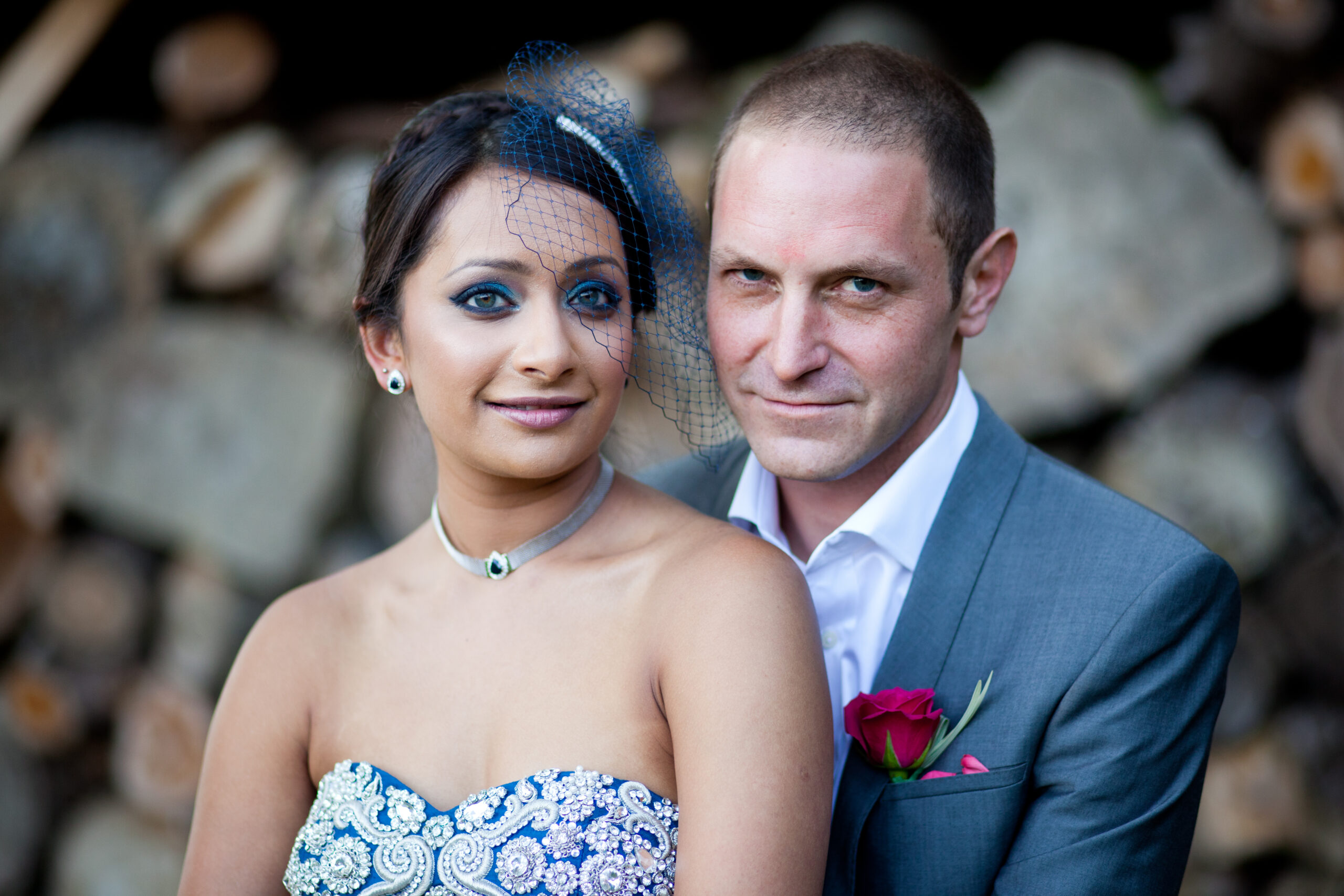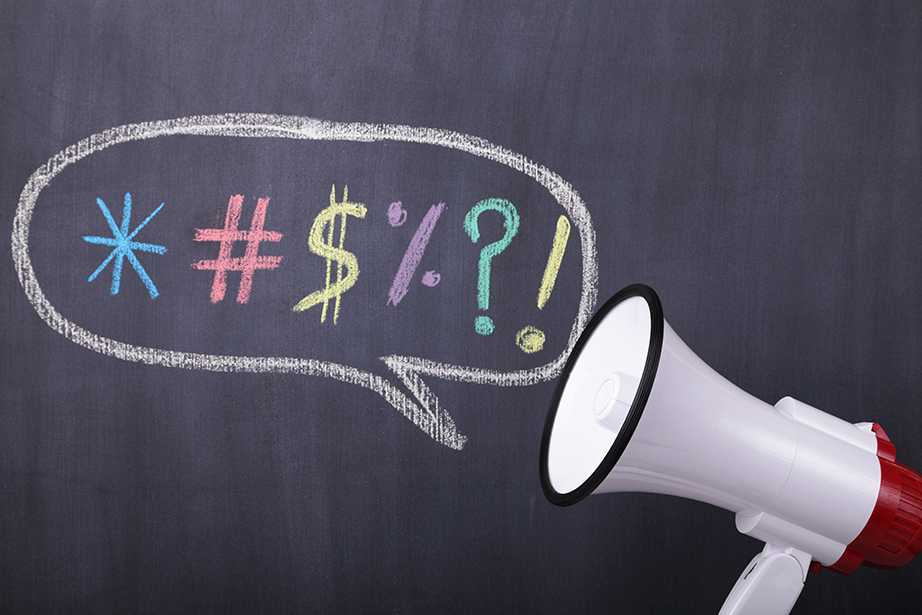We know Sarah Wilson well as the woman who has led the charge in getting us to stop guzzling the sweet stuff, but there’s another side to the I Quit Sugar trailblazer.
The former magazine editor and author has struggled with anxiety all her life; she has been diagnosed as bipolar and OCD, and suffers from insomnia. She admits she’s felt suicidal at times.
In her new book, First, We Make the Beast Beautiful, she opens up about her battle to overcome these issues and how she’s come to a new conclusion about what it means to live with anxiety. Here she shares her wisdom for anyone who has ever laid awake feeling worried about being worried.
Did writing a book about anxiety make you anxious?
A Getting anxious while writing the book was kind of necessary. And yes, the past two years have been the toughest, most challenging years of my life. But the really important message I wanted to convey and have a conversation around is that there is no cure for anxiety – but do we need to have a cure? It’s our anxiety about being anxious, about being anxious, about being anxious that is the real clusterf**k. I really felt this was something that needed to be discussed. So yes, I went through anxiety but that kept me real while I was writing the book.
It also means I’m not standing on a pulpit, as a guru, looking down and saying, ‘I did this and I’m cured’. That’s not the point of my book; in fact it’s the opposite.
In the book you share very personal details about your experiences of anxiety. Were you scared to be so open?
I have been told by some people that they’ve never read an uglier, grittier book in terms of going into the detail of some really intimate stuff that other people don’t ever see.
I took a risk in writing about that; I wasn’t sure other people really felt the same way but I figured they would at least have had similar experiences.
It turns out it’s some of the really particular, weird stuff I describe that people have [responded to] and said, ‘I didn’t realise there was anyone else on the planet who did that!’ So there is a commonality.
I just feel I’m sick of being lonely. Anxiety is a very lonely thing to go through but what we can do is reach out to each other and gently say ‘I know’. And that’s what’s been missing.
Why aren’t we more open about anxiety?
We live in a culture where the very symptoms of anxiety are put on a pedestal and none of us want to let go of it. We all want to say, ‘I’m a multi-tasker, and I’m frenetic and I don’t sleep, I’m go, go, go.’ It’s very hard to then say, ‘Actually, I’ve taken it too far.’
Do you think we often try to keep it hidden?
I would say the very person who you wouldn’t expect to be anxious is often the one who is, because it does go hand-in-hand with being a Type A achiever. It always has.
It backs my argument that anxiety should not be in the ‘disordered’ bucket. It can spin out into a disorder but it doesn’t have to. It doesn’t have to overtake you.
In the book I talk about some of the cruel ironies of anxiety, and one of those is that often when you’re anxious and you need people the most, that’s when you push them away.
We push them away for a whole bunch of reasons. We’re scared of how they’ll react if they see us vulnerable. We don’t like ourselves when we let go so we think other people won’t.
It creates a distance so then people often don’t realize somebody’s anxious because that person does everything to keep people away when they’re anxious.
So if anxiety goes hand-in-hand with perfectionism, how do we deal with that?
Well, as I said we don’t want to stamp out anxiety, but we do want to find a way to modulate it – so that it doesn’t take over.
What helps me is to do these little experiments with my perfectionism and learn to sit with imperfection.
Sit with the toast that’s burnt and cold, at the table with the wobbly leg and let go of my usual desire to make sure everything’s right. I treat it as a game and it’s a wonderful experiment.
I practice it in small measures and say to myself, ‘Let’s just see what happens when we let go’. It rebuilds better muscles.

What are some of the practical lifestyle changes you’ve made to help you live with the anxiety?
Meditation, without a doubt. I’m a really bad meditator but I keep doing it and the benefits roll out. In fact, being bad at it is even better in many ways because you build that re-calibration muscle over and over again. It’s just a mindset shift that being bad at something is actually good.
The meditation has really helped and the science behind meditation is all there. Meditation almost immediately tones down the anxious part of the brain.
Walking – particularly outdoors or in nature. There are countless studies showing that connection, and again it’s immediate. It’s been shown that the anxious part of the brain can’t work when we are walking in nature. I’m a mad hiker and I’ve done a lot of hikes in New Zealand – I just love it!
Morning routine. Anxiety is very much intertwined with the part of the brain that controls decisions so it’s about having a morning routine where you don’t make too many decisions – like what should I have for breakfast, what should I wear, what café should I go to. Those are the kinds of things that can undo you because the anxious part of the brain ends up on high alert.
Once you know that you can just minimise as many of the decisions that don’t matter as possible – and that’s a win-win because you simplify your life.
And of course, quitting sugar. This book is almost like the prequel to the I Quit Sugar book because it explains why. Again I refer to science on this because it helps the anxious brain out there to believe, but anxiety is increasingly being seen as to do with gut health and inflammation.
They’re the big new areas that are explaining mental health disorders and it’s less and less about chemical disorders in the brain. In fact that has largely been debunked. Of course, sugar has a direct influence on gut bacteria and inflammation. It’s a no-brainer. Everyone I speak to confirms that when they have quit sugar it has a big impact. It’s not the silver bullet but it’s certainly important.
Core exercises help as well. It’s basically about activating the vagus nerve [in the brain], so yoga and pilates are particularly good but anything that activates that core vagus area sends a direct message to that anxious part of the brain and tones it all down.
You also suffer from an auto-immune disease; does that have anything to do with the anxiety?
There’s a direct correlation between auto-immune diseases, and particularly thyroid diseases – of which Hashimoto’s is one – and anxiety and depression.
It’s hard to say what came first, but in fact we don’t need to know, because the way to modulate both is exactly the same. It’s through those five things I’ve just talked about. Nobody knows whether one causes the other or whether they’re both symptoms of a deeper root cause, but I suspect they are. I suspect both go back to inflammation.
The book is called First, We Make the Beast Beautiful. How can we come to see the beauty in our anxiety?
The title is based on a Greek proverb I came across in a book called An Unquiet Mind. It really stuck with me. I’ve always felt there was an absolute beauty to my anxiety and bipolar. I just didn’t want to ever let go of that.
When I ask people with anxiety whether at the base of it all is a desire to know what life is all about – a desire to get to the bottom of things – and whether it reflects that you’re not living the truest life that you could live, everybody I speak to says, ‘Yes’. For me, that’s where the true beauty lies. I call it the yearning in the book.
Anxiety is what happens when the yearning strikes us. It takes us deep down into the place we’ve got to go to. If we didn’t have anxiety we wouldn’t have those dark nights of the soul. Anxiety takes us to our lowest of lows and you have to go into darkness to see the light. It steers me to have a rich, meaningful life and will continue to do so.

First, We Make the Beast Beautiful by Sarah Wilson, $35, Pan Macmillan


